Show all entries of this category
423
Vote
“A snake-catcher went to the mountains to catch a snake by his incantations…”. Using this tale recounted by the Persian mystical poet Rumi as a starting point, Leili Anvar introduces here the notion of imperious self.
The imperious self is a central concept in Ostad Elahi’s philosophy. It is this product of the human psyche against which we must relentlessly struggle in order to make spiritual progress, for it is the origin of those of our impulses that systematically and insidiously arise to contradict correct ethical thoughts.
Read more
1574
Vote
The principles of a correct education of thought are not matters of intellectual speculation: it is through practice that they bear fruit. But what does putting them into practice actually mean? Bahram Elahi answers this question by pointing out the dangers of overly abstract approaches to practice and self-transformation. It is not enough to consider the principles in theory, or even to self-suggest them daily with the best willpower in the world: in order to “concretely feel” them, we must pitch them against reality.
Read more
548
Vote
No one likes to think of themselves as dishonest. In fact, most of us don’t think they are. Yet who can assert that they have been fully righteous and honest in every situation they have encountered over the past month or year? How can this dichotomy be explained? What is it that pushes us to adopt dishonest behaviours and that shuts down our moral conscience when we do so?
In this insightful and thought provoking talk given at the RSA, Dan Ariely, best-selling author and professor of psychology and behavioural economics at Duke University, draws from experiments conducted among various groups of people in different parts of the world, as well as on personal experiences, to shed some light on these questions.
Read more
1354
Vote
As far as spirituality goes, a purely theoretical approach to principles, detached from actual practice, will not do. Not only is it inefficient, it constitutes a genuine impediment to spiritual progress: that of smugness or spiritual “superioritism”. Professor Bahram Elahi spells this out in the following excerpt from a lecture given at the Sorbonne (Paris) […]
Read more
705
Vote
Ostad Elahi delivered the main thrust of his conception of wisdom in a prayer entitled “The Quintessence of Religions”. Leili Anvar chose this angle to shed some light in a concrete and personal way on some of the subtlest aspects of this thought which, while taking root in the mystical tradition, reverses the prevailing trend by replacing reason at its rightful place in the process of spiritual perfection. The question of evil, the meaning of true ethics and true humanness and the importance of faith are among the themes dealt with in this analysis.
Leili Anvar is Lecturer in Persian Literature at the Institut national des langues et civilisations orientales in Paris and a specialist in mystic poetry. This lecture was given on 10 September 2011 as part of a symposium organised by the Fondation Ostad Elahi around the question “What wisdom for our times?”.
Read more
1643
Vote
Ostad Elahi used to define his teachings as a new medicine of the soul: one that is adapted to the true nature of human beings and adheres to the law of causality governing both their spiritual and material lives. The spirituality he practiced was natural spirituality, and he considered the process of spiritual perfection to […]
Read more
1988
Vote
Professor Elahi regularly lectures in Europe and North America. In October 2010, his talk in Paris focused on two key concepts in Ostad Elahi’s thought: self-knowledge and Perfection. Self-knowledge refers to active, concrete, in vivo knowledge of the powers that constitute our being, a knowledge that becomes more refined through the practice of true ethics, based on correct divine principles. According to Professor Elahi, everything else results from this, including the level of development reached by the “metabrain”, as well as the understanding and freedom that one can enjoy here and in the other world.
Read more
1150
Vote
The idea of a self-transformative process leading to a better self is probably at the root of spirituality. It suggests the possibility of a higher form of happiness, inseparable from a state of moral perfection, an accomplished wisdom synonymous with true and perfect humanity. This lecture presents a summary of Ostad Elahi’s thoughts on what he calls the process of spiritual perfection. A process that fulfills the purpose of every being, which is to return to its Origin and thus reach the state of Perfection; it is driven by precise laws and dependent on specific means, such as human beings’ voluntary efforts to shape their thought and develop divine virtues.
Read more
892
Vote
What is it in me that says “I”? What is the nature of that consciousness of my self? What is my spirit made of? How am I psychologically constructed? We can ask this question in so many different ways, replace one term by another, we will always return to the same enigma: what is it in me that produces the feeling of existing, but also rules my behaviour, my thoughts and my emotions? What is this thing, which we could call the self, that enables me to think, to decide, to feel; that keeps all my experiences and gives me the innermost feeling of being myself, of having my own identity?
This lecture explores The model of the self according to Bahram Elahi as compared to the models put forward by neurosciences or Freud’s psychoanalytic model.
Read more
954
Vote
Rights and Duties: here are two concepts that seem to be excluded from our every day modern lives, at least the latter. With respect to rights, we instantly think of human rights. On duties there isn’t much said, almost nothing, the concept repels due to it’s constraining aspects, upsetting our sense of freedom; we would […]
Read more
Go top
|

 News
News Podcast
Podcast

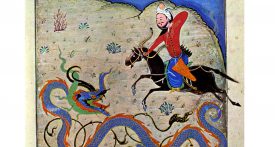
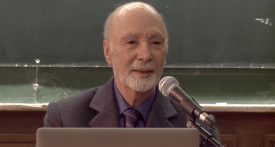
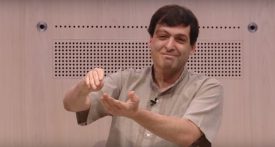
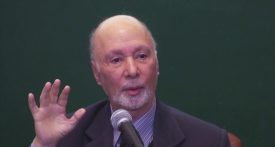
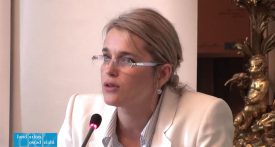
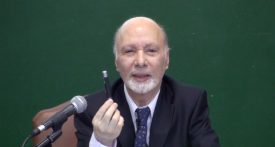
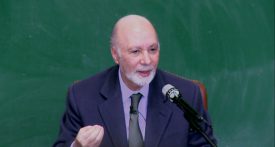





Recent Comments